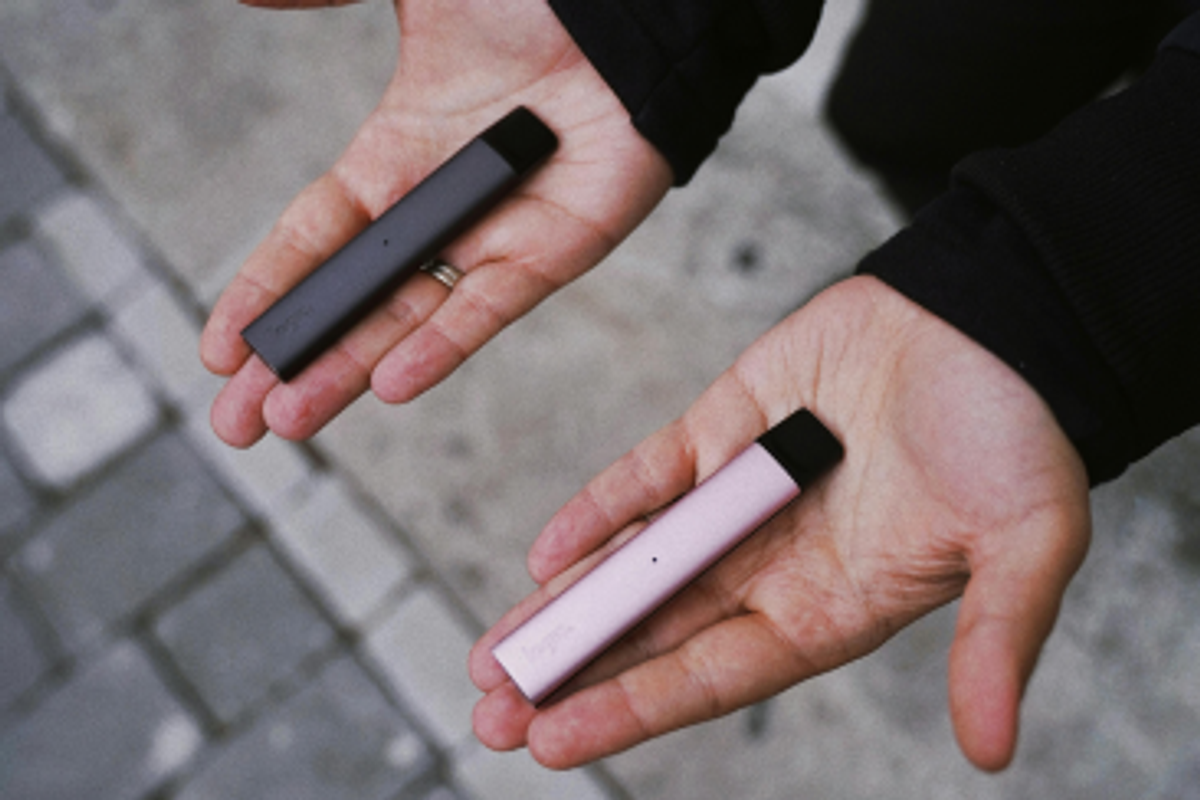With just days until the UK’s disposable vape ban comes into place, waste experts are warning businesses of fines for failing to provide take-back schemes.
The ban is designed to deter vape use, but reports show that many people are either stockpiling disposable vapes or switching to reusable models, meaning the popularity of vapes is likely to continue.
How is the ban affecting customer behaviour?
It doesn’t appear that the ban is effectively deterring people from vaping completely. Researchers told the BBC they believe many are switching to refillable and rechargeable vapes in anticipation of the ban.
Others appear to be stockpiling disposable vapes ahead of the ban. Shocking survey data shows 82 per cent of disposable vape users plan to stockpile disposable vapes before they’re banned.
For those who decide to use the opportunity to quit the habit, there may be an uptick in people disposing of old and existing vapes.
582,660,000 vapes go to landfill every year
According to research, only 17 per cent of people dispose of their vapes correctly. With 13.5 million vapes purchased every week, this means 11,205,000 could be binned weekly, equating to 582,660,000 every year. Stacked end to end, that’s 1.5 times the Earth's circumference.
This shows the huge scale of the issue. With the ban on disposable vapes only leading to a change in habits for vaping, as opposed to people stopping, the issue will likely continue.
What compliance do businesses need to follow when selling vapes?
When the ban comes into place on June 1 all retailers will face a fine of £200 if they continue to sell disposable vapes, with the possibility of further prosecution for repeat offences.
However, retailers face a much bigger fine for failing to provide a takeback scheme. Any retailers who sell £100,000 of electrical goods per year, whether that’s instore or online, must provide a takeback scheme to dispose of WEEE (Waste Electrical and Electronic Equipment). Vapes fall under this category.
If you sell less than £100,000 worth of electrical goods per year, you can choose to pay a fee and join the DTS (Distributor Take Back Scheme) instead of offering in-store collection. This scheme allows businesses to pay a fee that covers any WEEE obligations until 31 December 2026. The money then goes towards supporting the recycling centres run by local authorities and requires businesses to keep a record of information given to customers about where they should take their WEEE.
Any businesses that fail to adhere to these rules risk fines of £6,000 and further prosecution.
Why should you offer a takeback scheme?
Many customers mistakenly believe that vapes can be tossed into their regular bin at home, but they’re actually classed as WEEE, which has strict rules for disposal. When vapes are disposed of in household bins, this can lead to fires in bin trucks and at waste management sites, posing a huge risk to workers and the public.
Vapes contain lithium-ion batteries that can overheat and ignite when damaged or crushed. If vapes enter bin lorries or waste management facilities, this is a common occurrence as waste is compressed. Data shows that vape-related fires are on the rise in the UK, with a huge surge of 348 per cent between 2020 and 2025. This equates to one vape fire every 1.7 days.
Alongside this, any vapes that end up in landfill can leach battery acid, nicotine, and chemicals from the plastic into the environment, causing further damage.
It’s therefore vital that businesses offer a takeback scheme to comply with the law and protect waste workers and the environment.
“The ban on disposable vapes is certainly a step in the right direction," said Graham Matthews, WEEE expert at BusinessWaste.co.uk. "However, it’s concerning to see it hasn’t had the desired effect with many people simply stockpiling or switching to reusable models. While a reusable vape is still the preferred option, the lack of education surrounding correct disposal means we’re likely to see vape-related bin and waste fires continue.
“Vaping is a habit that many people will find hard to quit, or are reluctant to attempt, so a better alternative is to focus on educating customers about the risk of improper disposal. With vapes technically classed as WEEE, we encourage retailers to inform customers about the correct methods for disposal and either provide a takeback scheme or offer guidance in accordance with the DTS.”


